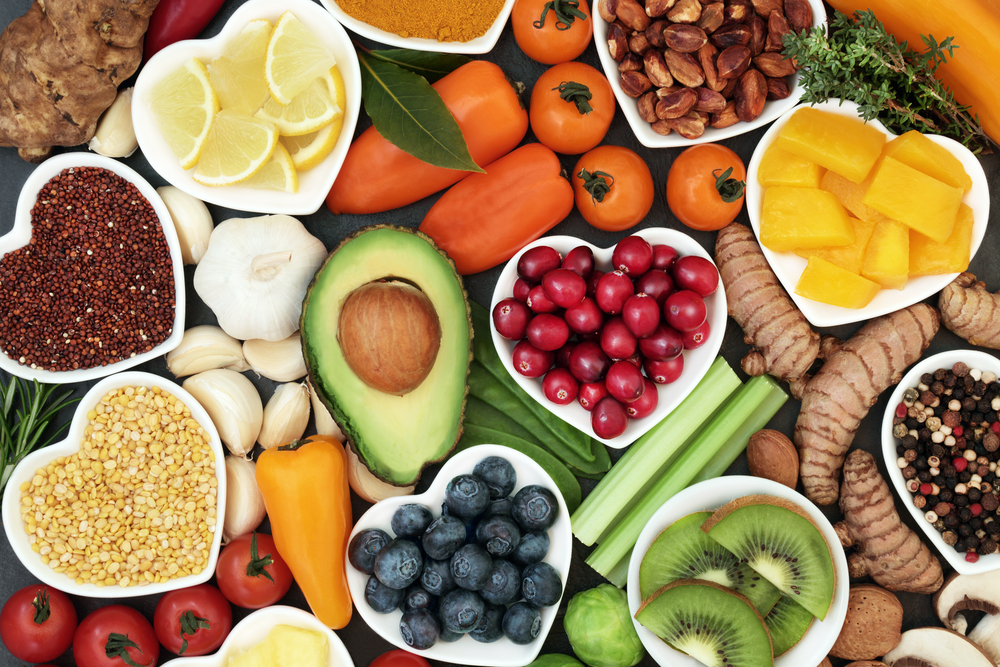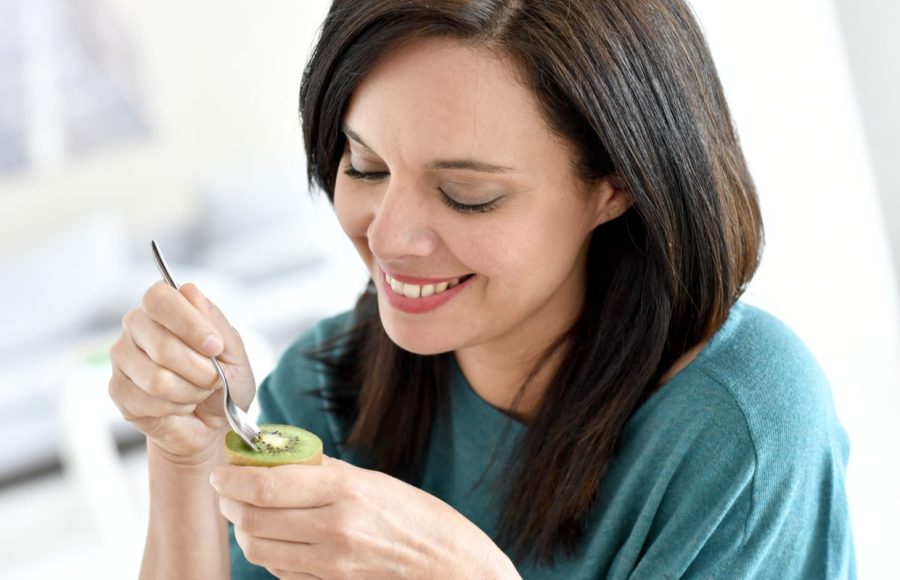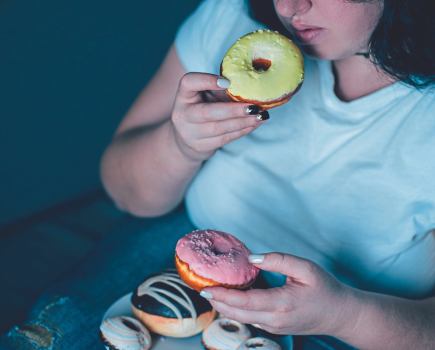Struggling to fall or stay asleep? Your hormones could be to blame. Did you know, certain foods (including kiwis!) can balance your hormones and help you sleep? Our Mindful Eater, Sam Rice, explains all…
According to a recent YouGov poll, 32 per cent of adults are getting seven hours of sleep a night, with 27 per cent getting just six hours a night. The National Sleep Foundation advises that the difference between a restless and a restful night has a lot to do with your diet.
It’s tempting to turn to medication if you aren’t sleeping well, but there are some certain foods that may help you sleep better – and it’s largely down to your hormones.

Which hormones are involved in sleep?
Melatonin lets your body know when it’s time to sleep and when it’s time to wake up. But as you grow older, your melatonin levels decline and you can experience a deterioration in sleep quality. Happily, some foods contain melatonin naturally, meaning they can help you sleep.
Which foods contain melatonin?
The following foods naturally contain melatonin, a key hormone involved in the sleep-wake cycle. Try adding these foods to you daily diet to improve your sleep quality…
- Milk
- Tomatoes
- Peppers
- Cherries
- Grapes
- Strawberries
How can I naturally increase serotonin levels?
Another hormone that is key to a good night’s sleep is serotonin. The vitamin D and omega-3 fatty acids in oily fish are thought to help sleep by regulating the body’s production of serotonin, so try eating some twice a week.
In the northern hemisphere, where sun exposure is limited, vitamin D defi ciencies are more common, so it’s worth considering taking a supplement.
 Which nutrients do I need to balance my sleep hormones?
Which nutrients do I need to balance my sleep hormones?
Calcium
Calcium is a key nutrient used in the production of melatonin. It is found in dairy products, as well as leafy greens, so there is some truth in the old wives’ tale that a glass of warm milk before bed will help you sleep.
Vitamin B6
Vitamin B6 is another important nutrient used in the production of melatonin. Good sources of B6 include pork, chicken, peanuts and oats.
Magnesium
Magnesium is also vital for sleep, a poor intake of which has been associated with higher levels of stress and difficulty relaxing. Good sources of magnesium include bananas, almonds, avocados and fish.
Top 5 foods to help you sleep
Kiwis
Kiwis are a surprising sleep-promoting food. One study found that people eating two kiwis an hour before bed fell asleep more quickly and enjoyed better sleep quality.
The month-long study found that thanks to the kiwis, participants fell asleep faster, increased their total sleep time and didn’t wake up as much during the night. Time to buy some kiwis!
Oats
Oats contain tryptophan, an amino acid the brain converts into serotonin, which relaxes the body before sleep. Instead of porridge for breakfast, enjoy it as an evening snack.

Milk
Milk also contains tryptophan, as well as melatonin, making it a great choice for a pre-bedtime drink. Try making golden milk, which has been shown to promote relaxation (Click here for Peta Leith’s recipe!).
Cherries
Cherries, particularly tart cherries, naturally contain high levels of melatonin, making them a great natural sleep. Try drinking a glass of cherry juice before heading to bed.
Almonds
Almonds are especially beneficial for improving sleep, as they contain both magnesium and melatonin, which are essential for helping you to relax and regulate your sleep-wake cycle.
The Midlife Method: How to lose weight and feel great after 40, by Sam Rice (£14.99, Headline Home) is available now.







